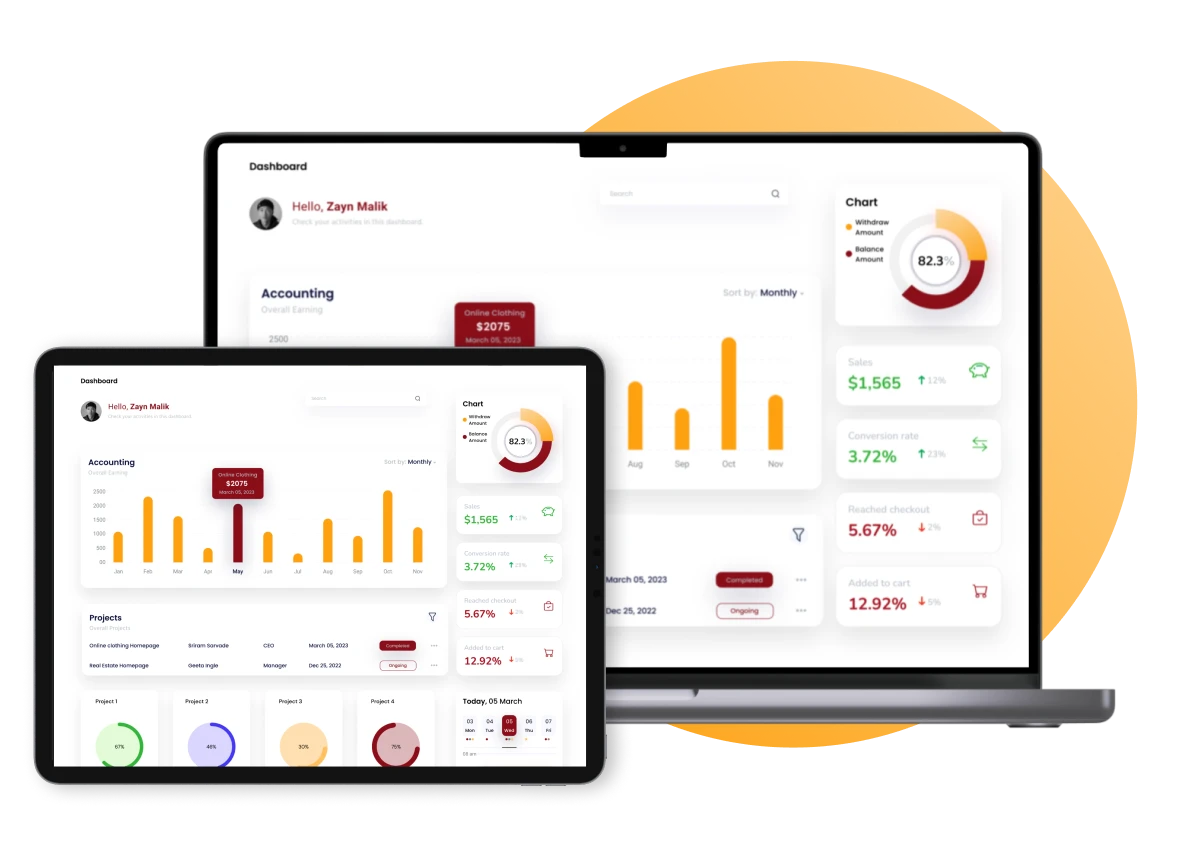Monthly Recurring Revenue is the foundation of subscription businesses, yet many business owners miss its full potential. If your income feels unpredictable or your business growth is stagnant, you might be overlooking the power of MRR.
MRR helps you understand where your income comes from and how to grow it steadily every month. By tracking it properly, you can identify what works, fix what doesn’t, and plan for a more profitable future, no matter what type of subscription business you run.
This article will explain MRR in simple terms, from how to calculate it to boost your revenue.
Key Takeaways
|
Table of Contents
What is Monthly Recurring Revenue (MRR)?
Monthly Recurring Revenue (MRR) is the steady income your business earns from subscription services each month. It helps you predict future earnings, making it essential for businesses with recurring billing like SaaS or membership programs.
For businesses in the Philippines offering subscriptions, MRR gives you a clear view of your monthly income. It’s crucial for budgeting, planning, and supporting growth during uncertain times, allowing better management of operations and customer retention. Let’s dive a bit deeper to learn about the types of MRR.
Components of MMR
Understanding the types of MRR will help your business track how different factors impact revenue growth or loss. Each type provides valuable insights into customer behavior and how it affects your business’s financial health. By analyzing these types, you can identify where to improve and grow. Those are:
| Types | Definition |
|---|---|
| New MRR | Revenue earned from fresh subscriptions within the month reflects how successful your marketing efforts have been. |
| Expansion MRR | Additional income is generated through upsells, add-ons, or upgrades by existing customers, showing their level of satisfaction. |
| Churned MRR | Revenue is lost when customers cancel their subscriptions, highlighting areas in need of improvement. |
| Contraction MRR | Revenue is lost due to customers downgrading their plans, which can affect your overall business momentum. |
| Reactivation MRR | Income is gained when previous customers resubscribe, reflecting stronger customer relationships and retention efforts. |
Each type of MRR tells a story about the customer experience and business performance. Monitoring these will help you make informed decisions about where to focus your energy, whether it’s attracting new customers or offering better plans to boost satisfaction. Let’s do math next.
How to Calculate Monthly Recurring Revenue
Calculating MRR is essential for understanding your monthly income and managing your business finances effectively. It’s a straightforward process that helps you track predictable revenue, which is crucial for making informed decisions about budgeting and growth.
The basic formula to calculate MRR is:
1. Calculating MRR for Single Income Stream
Use this formula to calculate MRR when you only have 1 income stream:
MRR = Number of subscribers × Average Revenue Per User (ARPU)
For example, if you have 10 customers paying ₱1,000 each month, your MRR would be:
MRR = 10 × ₱1,000 = ₱10,000
By understanding both ARPU and MRR, you can better track your business performance, forecast growth, and manage your finances.
2. Calculating MRR for Multiple Streams
To calculate MRR for each income stream, use the basic formula:
MRR = Number of subscribers × Average Revenue Per User (ARPU)
For example, let’s say you have two income streams. One is a monthly subscription plan, and the other is an annual plan:
- For the monthly stream, you have 50 customers paying ₱1,000 each month. The MRR for this stream would be: MRR = 50 × ₱1,000 = ₱50,000
- For the annual stream, you have 20 customers paying ₱12,000 annually. To find their monthly contribution, divide the annual payment by 12: ₱12,000 ÷ 12 = ₱1,000 per month
The MRR for this stream is: MRR = 20 × ₱1,000 = ₱20,000
Now, add the MRR from both streams to get your total monthly recurring revenue:
Total MRR = ₱50,000 (monthly stream) + ₱20,000 (annual stream) = ₱70,000

Why Tracking Monthly Recurring Revenue is Important?
Tracking MRR is essential for Filipino entrepreneurs because it provides valuable insights into your business’s financial health and growth potential. By monitoring MRR, you can make smarter decisions about budgeting, resource allocation, and future planning.
Here are three reasons why tracking MRR is important:
- Predictable Income: Tracking MRR gives you a clear view of your steady monthly revenue. This helps you plan for cash flow, manage operating costs, and reduce financial uncertainty.
- Strategic Growth: With accurate MRR data, you can forecast future growth and plan for expansions, new product launches, or seasonal changes.
- Understanding Business Momentum: Regularly tracking MRR helps you assess your business momentum. If your MRR is rising, it indicates strong growth, while a dip could signal areas that need improvement.
If you want to simplify tracking and analysis, you can use an accounting software system to automate MRR calculations and gain more control over your financial data.
Key Metrics to Use Alongside MRR
MRR alone doesn’t give the full picture; combining it with other key metrics offers deeper insights. Customer Lifetime Value (CLV) estimates how much revenue a customer will generate throughout their relationship with your business.
Customer Acquisition Cost (CAC) helps you measure how much you spend to bring in each new subscriber. Lastly, Churn Rate lets you monitor the percentage of customers who cancel subscriptions, enabling targeted retention strategies.
Common Mistakes When Calculating MRR
Avoiding mistakes when calculating MRR is essential for ensuring your revenue reflects the true financial health of your business. Even small errors can lead to misleading results and affect your strategy. Here are four common mistakes to be aware of:
- Including One-Time Payments: One-time payments or setup fees should not be included in MRR. These are not recurring and can inflate your monthly revenue figures.
- Misclassifying Annual Contracts: Treating annual or multi-year contracts as monthly revenue can distort your MRR.
- Ignoring Churned Customers or Failed Payments: Failing to account for unpaid subscriptions can lead to an inflated MRR. It’s important to adjust for customers who cancel or fail to pay.
- Overlooking Discounts or Promotions: Applying discounts or promotional pricing without proper adjustment can skew your MRR calculation.
By being mindful of these mistakes and ensuring accurate calculations, you can make better decisions for your business and have a more reliable forecast for growth.
Manage Monthly Recurring Revenue with HashMicro’s Accounting Software
HashMicro’s accounting software provides several powerful features that are specifically designed to help businesses manage their Monthly Recurring Revenue (MRR). These features simplify tracking, forecasting, and reporting on subscription-based income.
Here are five features closely tied to MRR management:
- Automated Payment Tracking: Effortlessly track and reconcile MRR with automatic payment processing.
- Accurate Forecasting: Predict future MRR and prepare for growth with budget forecasting.
- Cash Flow Visibility: Monitor how subscription payments affect your cash flow in real-time.
- Better Decision Making: Compare profit and loss with forecasts to stay on target.
- Reduce Churn: Automatically follow up on customer payments, improving retention and reducing missed revenue.
By using Financial management systems such as HashMicro’s accounting software, you’ll gain better control over your recurring revenue, optimize cash flow, and make data-driven decisions that support long-term growth.
Conclusion
Monthly Recurring Revenue (MRR) is a vital metric that helps subscription businesses predict income and plan growth. It offers valuable insights into your financial health and helps track your steady revenue, giving you control over budgeting and resource allocation.
By understanding MRR, you can make better decisions, improve customer retention, and prepare for future growth. If you want to simplify the process and manage your MRR more effectively, try HashMicro’s free demo today!

FAQ Around Monthly Recurring Revenue
-
What is MRR and ARR?
MRR (Monthly Recurring Revenue) tracks monthly predictable income from subscriptions. ARR (Annual Recurring Revenue) is the same metric but calculated on an annual basis, offering a long-term revenue view.
-
What is KPI monthly recurring revenue?
KPI for MRR is a key performance indicator measuring monthly subscription-based income. It helps businesses track growth, predict future earnings, and make informed financial decisions.
-
Is MRR the same as monthly revenue?
MRR focuses on income from recurring subscriptions, while monthly revenue includes all income sources. MRR excludes one-time payments, making it more reliable for forecasting and planning such as COR (cost of revenue).
























